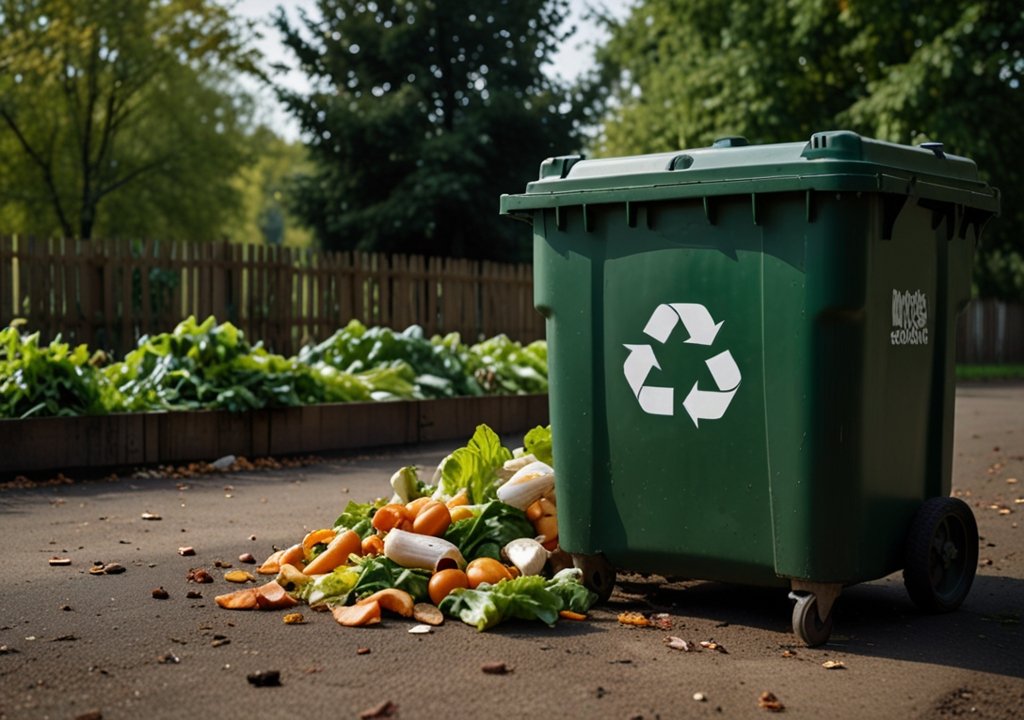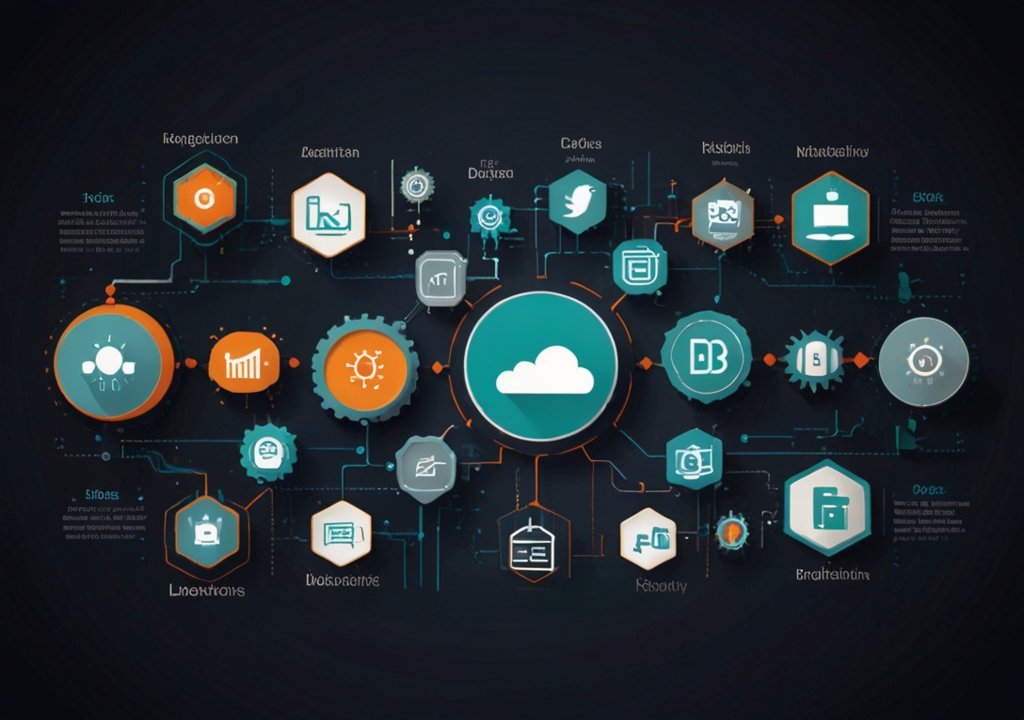Key Takeaways
- Food waste recycling helps reduce landfill use, cut greenhouse gas emissions, and conserve valuable natural resources.
- Households, businesses, and whole communities each play a critical role in minimizing and redirecting food waste.
- New recycling technologies are unlocking surprising sources of renewable energy and high-quality soil.
- Policy change and community action are making sustainable food waste management increasingly achievable.
- The future holds exciting advancements in both prevention and recycling, benefiting both people and the planet.
Food Waste: A Global Challenge
Food waste is a pressing issue in kitchens, restaurants, and stores worldwide. Experts estimate that global food waste accounts for approximately one-third of all food produced, resulting in over one billion tons being discarded annually. This waste costs households hundreds of dollars each year. Innovative leaders like GF Commodities are rethinking food handling and promoting sustainable waste management.
If food waste were a country, it would rank as the third-largest greenhouse gas emitter, following the U.S. and China. This issue not only wastes vital resources but also leaves millions hungry, often near discarded food. The United Nations Environment Programme states that food waste accounts for 8–10% of global greenhouse gas emissions annually, a critical statistic. Addressing this challenge demands commitment at all societal levels.
Environmental Benefits of Recycling Food Waste
Redirecting food waste from landfills is a simple yet powerful way to benefit the environment. When food scraps end up in landfills, they decompose without oxygen, releasing methane, a greenhouse gas with over 80 times the warming power of carbon dioxide in its first 20 years. Landfill food waste significantly contributes to emissions, exacerbating the climate crisis that lies beneath the garbage.
In contrast, recycling food waste through composting or converting it to renewable energy via anaerobic digestion has a dramatic impact. Composting returns nutrients to the soil, enhancing drought resistance and crop yields while reducing reliance on chemical fertilizers. Anaerobic digestion not only cuts emissions but also captures biogas to power homes and vehicles or heat municipal water. These strategies have led to measurable reductions in cities and countries that recycle food waste, demonstrating how households and organizations can contribute to a sustainable future.
READ ALSO: ProcurementNation.com Contact: Your Direct Line to Supply Chain Mastery
Practical Ways to Recycle Food Waste
Food waste is a global issue, with various solutions available for multiple sectors. Composting is a popular method that turns food scraps into nutrient-rich soil amendments for gardening, farming, or landscaping. Cities with robust compost initiatives often offer weekly curbside pickup or public drop-off points. Some large employers sponsor on-site compost bins, enabling workers to divert their lunch leftovers daily. Commercial digesters can turn food scraps into green energy and fertilizer, encouraging recycling. Upcycling and food recovery programs can also help reduce waste. Simple household actions, such as freezing leftovers, using shopping lists, and storing perishables properly, can reduce food waste by up to 30%. Community-scale initiatives, such as composting co-ops and surplus sharing networks, are also gaining popularity, making sustainable habits more accessible to consumers and businesses.
How Businesses Are Supporting Sustainability
Retail, hospitality, and food service companies are reducing their environmental impact, often gaining cost savings and positive publicity. Through food waste audits, staff training, and enhanced inventory tracking, many restaurants and grocers now understand their waste streams. Analyzing discarded items enables businesses to refine their menus, optimize portion sizes, and adjust prices to encourage the sale of items nearing expiration. Unusable waste is increasingly viewed as a resource, with surplus food donated to food banks or turned into animal feed, while recycling partnerships prevent organic scraps from reaching landfills. These initiatives create a sustainable culture and attract environmentally conscious consumers. Such practices contribute to a broader industry shift toward resourcefulness and environmental awareness as the public becomes increasingly aware of the impacts on supply chains.
Government Policies and Community Action
Governments and grassroots organizations worldwide are implementing measures to reduce food waste, including regulations that require the separation of organic waste in major cities. These mandates, along with incentives for businesses and liability protections for donors, significantly increase food recycling or reallocation. Community engagement is crucial for success, with campaigns that teach children about composting and promote neighborhood collection days. Schools, faith groups, and eco-conscious organizations often provide education and infrastructure to spark lasting participation. As these programs grow, the positive effects accumulate, laying the groundwork for sustainable habits that extend beyond individual action.
Emerging Technologies in Food Waste Recycling
Innovations in food waste recycling are transforming the industry. Compact, high-speed compost machines are making it easier for apartment complexes and large institutions to compost on-site. Anaerobic digestion plants are unlocking new potential for renewable energy sources, including fuels. Advanced data analytics and machine learning tools are helping retailers predict inventory needs, reducing overstock and spoilage. Digital platforms and food-sharing apps are connecting surplus to hungry mouths, demonstrating how rapid progress in sensors and logistics can make zero-waste aspirations a reality.
How Individuals Can Make a Difference
To reduce food waste, start by planning meals weekly, labeling leftovers, and using overripe fruits or vegetables in recipes. Store perishables in clear containers, invest in a countertop compost bin, join community composting programs or food-sharing networks, support businesses that prioritize food recovery, and conduct waste audits. Also, share tips and strategies with friends and neighbors. These small changes can be replicated across neighborhoods and cities, reducing food waste and fostering a culture of resourcefulness. By implementing these strategies, individuals can set an example for others and reduce food waste.
Looking Ahead: The Future of Food Waste Recycling
Technology advancements and public awareness are making sustainable food waste management more accessible, cost-effective, and impactful. Policy changes are expected to expand, and businesses will innovate, creating new markets for upcycled goods and green energy. Community collaborations and practical education initiatives are also playing a larger role. Small adjustments, such as smarter meal prep, supporting dynamic business models, and participating in local compost pickup, contribute to a greener future. With a commitment to adopting new habits and implementing more effective systems, food waste can become a valuable resource for both communities and the environment.
YOU MAY ALSO LIKE: Scrap Metal Recycling: How Old Junk is Powering a Sustainable Revolution











